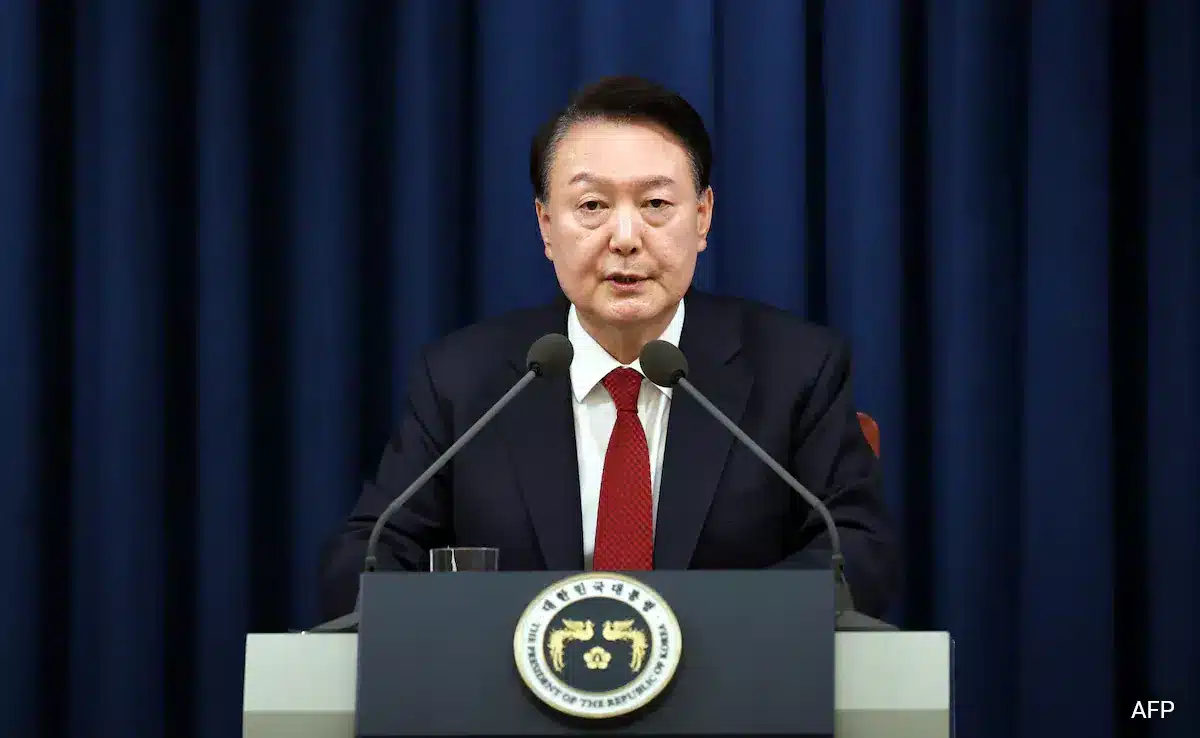The ‘Traitor’ at the Center of South Korea’s Impeachment Crisis

Han Dong-Hoon, once a close ally of President Yoon Suk-Yeol, has emerged as a key figure in South Korea’s political crisis. Following Yoon’s unexpected declaration of martial law on December 3, Han took decisive action to oppose the president’s controversial move. This bold stance not only led to the lifting of martial law but also culminated in Yoon’s impeachment, marking a significant shift in Han’s political trajectory.
Martial Law Sparks Outrage
On the night of December 3, Han Dong-Hoon was driving home from dinner in Seoul when he heard President Yoon Suk-Yeol announce an emergency address. As the leader of the People’s Power Party (PPP) and a close ally of Yoon, Han was taken by surprise. The president’s declaration of martial law aimed at eliminating “anti-state forces” and North Korean sympathizers sent shockwaves through the nation. Han immediately recognized the potential for chaos, fearing that failure to lift the decree could lead to violence. In response to Yoon’s announcement, opposition leader Lee Jae-myung organized a live-streamed protest, urging citizens to gather outside the National Assembly. Thousands took to the streets, clashing with police and attempting to block military units. Han joined the fray, scrambling to enter the assembly building alongside fellow lawmakers to thwart Yoon’s order. The urgency of the situation galvanized Han and his colleagues, leading to a successful effort to overturn the martial law declaration.
A Shocking Impeachment
In the aftermath of the martial law debacle, Han’s actions took a surprising turn. Initially, he opposed the impeachment motion against Yoon, aligning with most PPP members who boycotted the first vote. However, as allegations surfaced that Yoon had ordered the arrest of key political figures during the crisis, Han shifted his stance. He rallied support for a second impeachment attempt, ultimately leading to Yoon’s ousting. Han’s decision to impeach the president he once supported drew ire from many within the PPP, branding him a “traitor.” Reflecting on the tumultuous events, Han expressed no regrets about opposing martial law but acknowledged the pain of betraying a long-time ally. He emphasized that his actions were driven by a commitment to South Korea’s democratic principles and the need for political accountability.
Reflections and Future Aspirations
Following Yoon’s impeachment, Han stepped down as the leader of the PPP, taking time to reflect on the political upheaval. He penned a memoir titled “The People Come First,” detailing the events surrounding the martial law declaration and his subsequent actions. Released shortly after the Constitutional Court’s final hearing on Yoon’s impeachment, the book has become a bestseller, hinting at Han’s ambitions for a future political career. In his memoir, Han discusses the necessity of constitutional reform and proposes changing South Korea’s presidential term from five years to four. Despite facing criticism and a declining approval rating, Han remains steadfast in his belief that his decisions were essential for the nation’s progress. He publicly apologized for the turmoil caused by Yoon’s martial law, expressing regret for the impact on the South Korean people.
As South Korea navigates this political crisis, Han Dong-Hoon’s journey from loyal ally to a pivotal opposition figure underscores the complexities of the nation’s political landscape. His future remains uncertain, but his recent actions have undoubtedly reshaped the narrative of South Korean politics.
Observer Voice is the one stop site for National, International news, Sports, Editor’s Choice, Art/culture contents, Quotes and much more. We also cover historical contents. Historical contents includes World History, Indian History, and what happened today. The website also covers Entertainment across the India and World.

